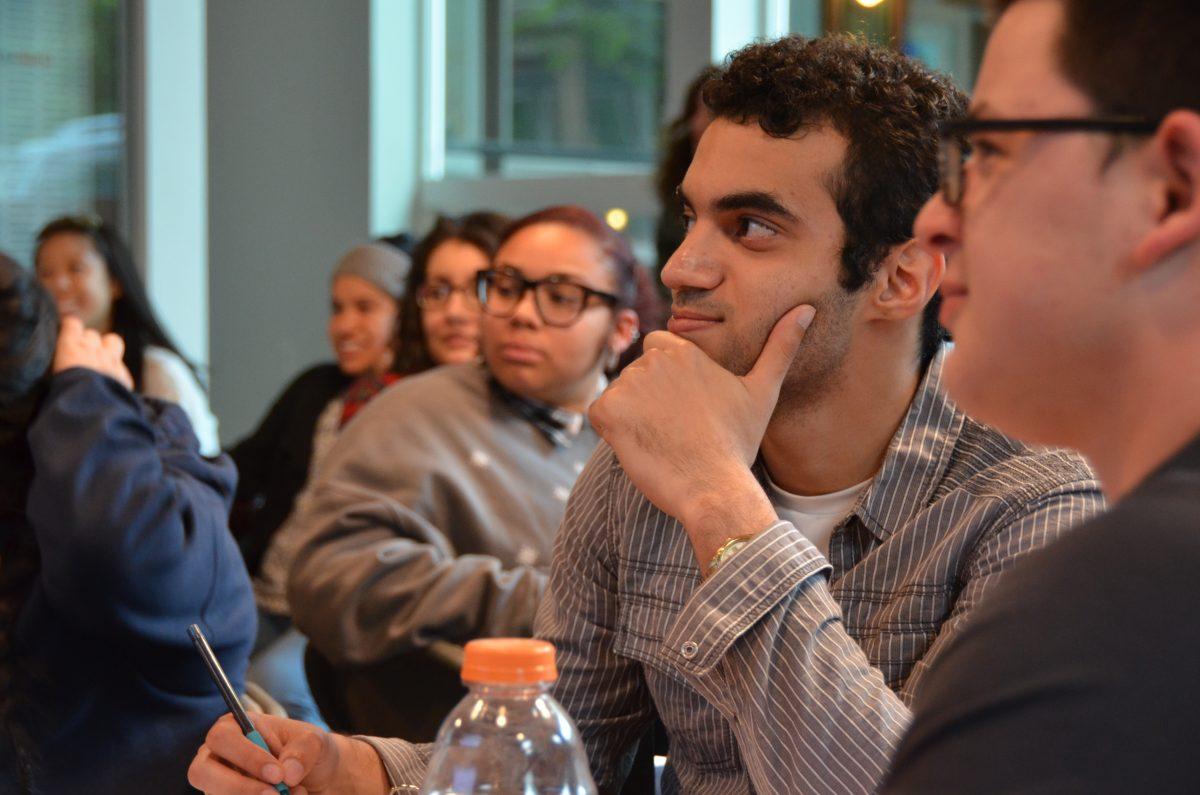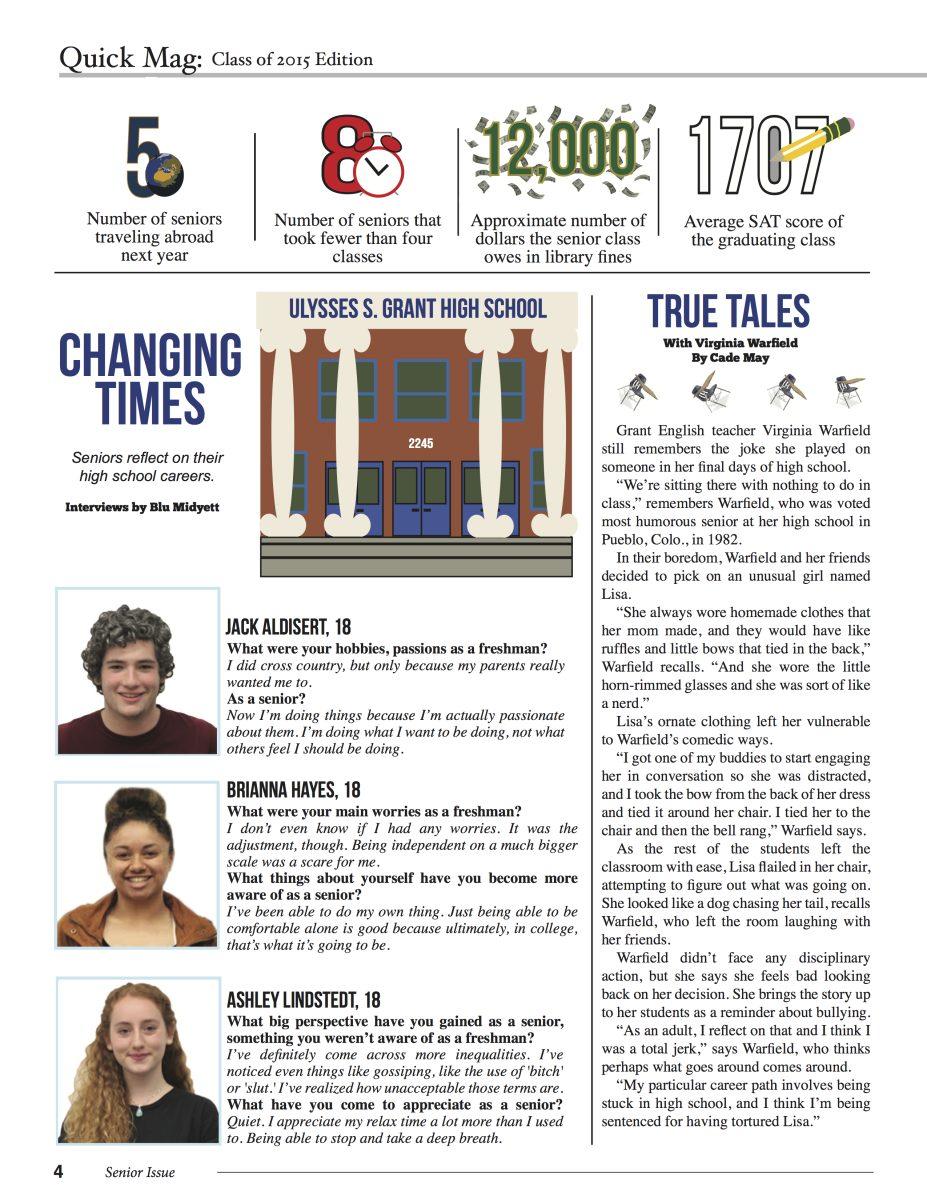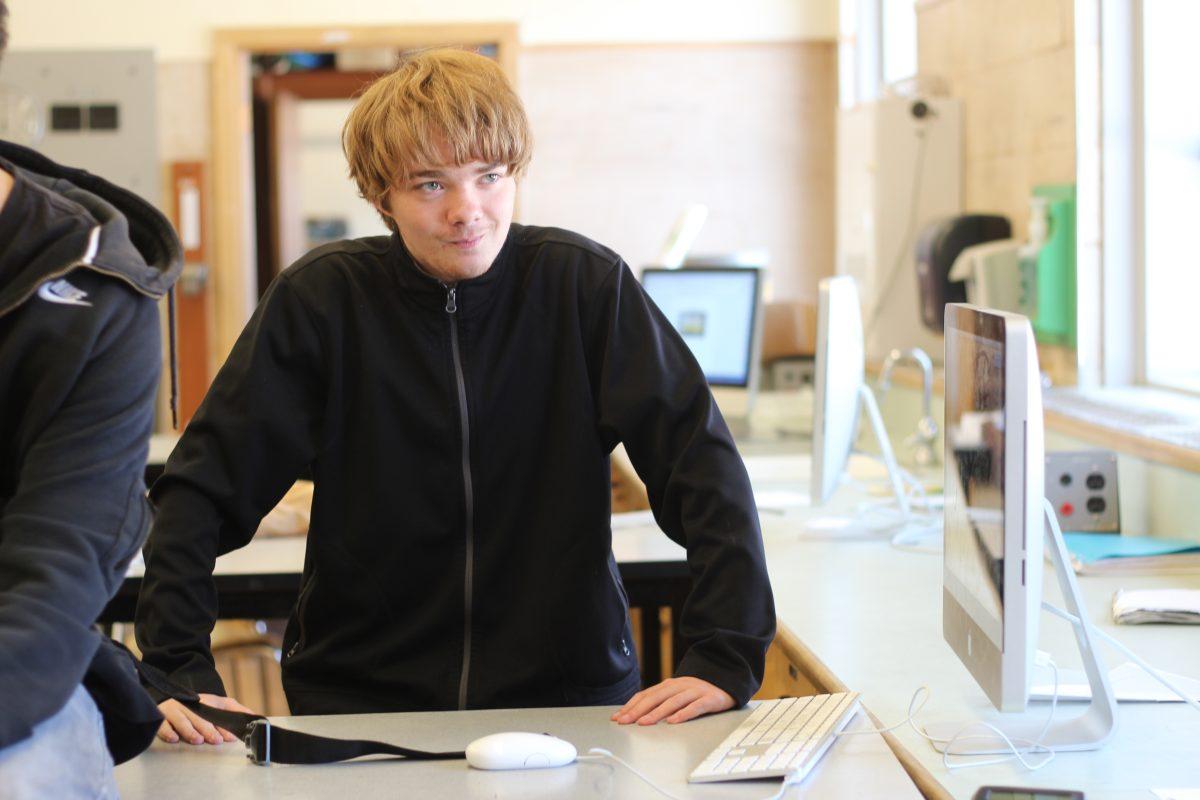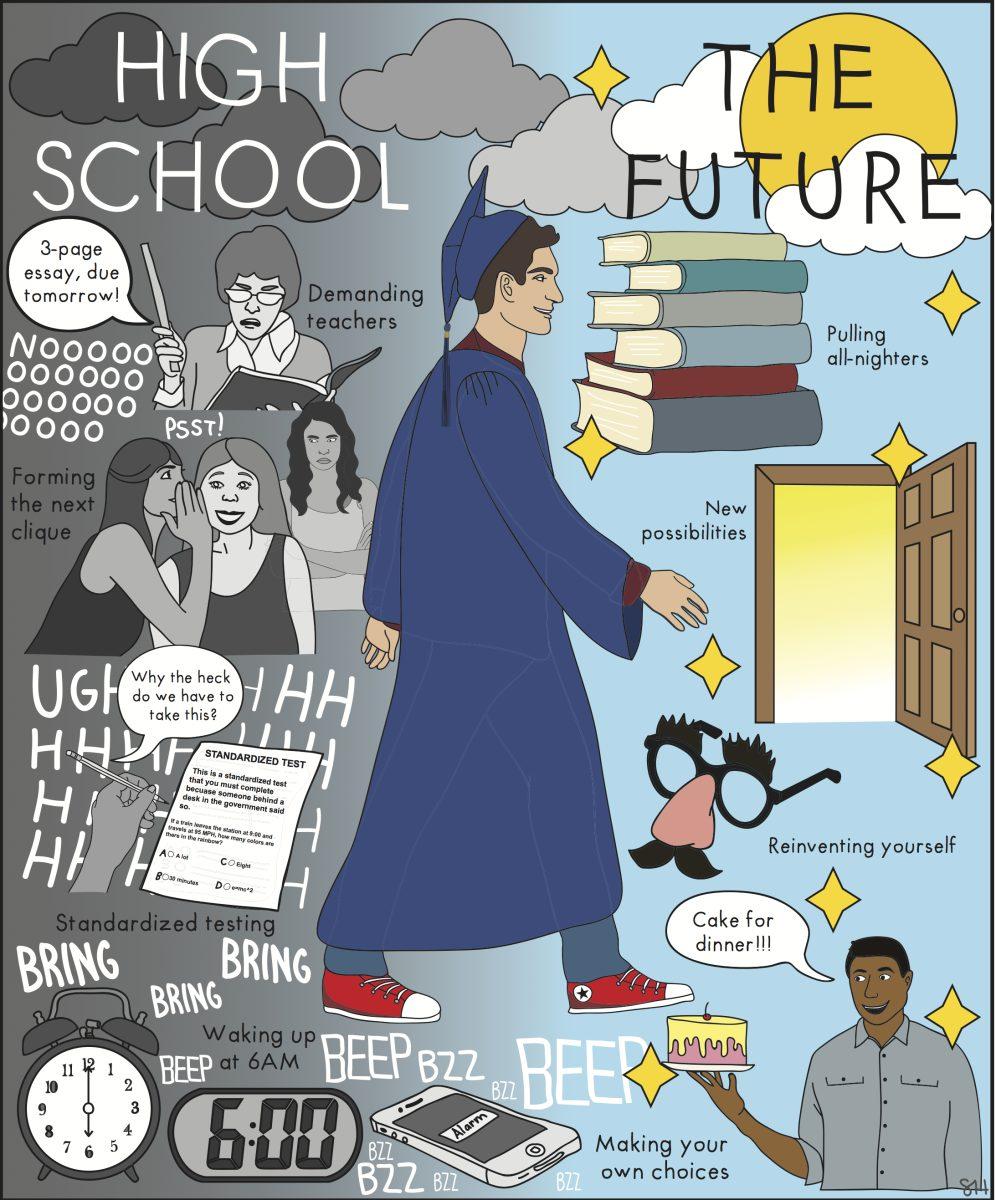
It’s a typical second-semester school day, and Grant High School senior Alec Sutter is not in class. Instead, he’s roughly 10 blocks away at Lucca, an Italian restaurant on Northeast Fremont Street, hustling back and forth between the kitchen and the floor with hands full of dishes.
Meanwhile, his girlfriend, Jackie del Togno, also a senior, is across the city working the counter at Bamboo Craftsman Company. Both completed high school five months early so they could start working and preparing for the trip of a lifetime.
“We’re going to Central America,” says Sutter. He and del Togno have spent nearly a year preparing and they’re just shy of their target budget of $15,000.
Sutter and del Togno, who’ve been together for almost two years, are putting college on hold for a gap year they designed themselves. They figure it will give them time to reflect upon themselves, their passions and to decide how they truly want to spend their lives.
With an eight-month-long backpacking excursion through Central America on the horizon, Sutter and del Togno have made countless sacrifices to plan and make it all possible. Both have been working about 40 hours a week, full time, and they’ve raised over $12,000 so far. They will have reached their goal by the end of the summer, they say.
After saying their farewells in September, they’ll head to the southern tip of Mexico before traversing the entire Central American subcontinent from Belize to Panama. While carrying minimal equipment, the two believe their experiences will put life into perspective in a way that a traditional education cannot.
“It’s gonna be a really amazing experience for both of us that a lot of people don’t get in their lives,” says del Togno. “Now’s the time to do it.”
Sutter and del Togno, both 18, were both born and raised in Portland. While del Togno has lived in Northeast Portland her whole life, Sutter has spent time living all over the city, from North to Northeast to Southeast Portland. He went to Alameda Elementary School and Beaumont Middle School before coming to Grant. Del Togno came up through Laurelhurst School.
“We met because he liked my best friend,” laughs del Togno. It was May of sophomore year, and they began dating that summer.
They’ve been together ever since. Their Central America plans became official about six months ago when they realized they had enough earning potential to make the trip.
“I just love outdoor activities,” says Sutter. “Especially since I met Jackie, we always go backpacking and we’re always doing stuff outdoors so backpacking and a gap year sounded like one of the greatest opportunities we could have.”
Madeline Kokes, Grant’s Career Coordinator, likes to see students branching out and trying new things before going to college. The president of Quest University in Canada once shared with her his belief that a gap year should be required for every single student.
“They grow up, they change routines, and they come back more focused and ready to work and with a more mature outlook,” Kokes says. “Just break it up, do something, go out and see the world, do hands on work. And then come back ready to go to college. I’m a big fan. It’s becoming more and more popular.”
The American Gap Association, a Portland-based organization dedicated to advocating for students to take gap years, says on its website that interest in gap years “is growing in a substantive fashion.”
Grant Spanish teacher Colin Oriard is a supporter of gap years. As someone who has spent years living in Denmark, Spain, Germany and Australia and who is fluent in four languages, Oriard sees incredible value in spending time outside of one’s own country.
“Traveling is one of the greatest things that one can do in life and to get those experiences at a young age is so valuable,” Oriard says. “You gain a lot of perspective. The amount of personal growth one can have living in a foreign country is astronomical.”
For Oriard, stepping out of his comfort zone changed everything. With opportunities to play professional basketball in various countries overseas, his love for traveling snowballed over time. He believes that people often forget that their own cultures and ways of life are not universal, and that experiencing other customs opens up the big picture.
“Our lifestyle is very, very fast – everyone is in a hurry,” says Oriard. “I noticed that when I lived in other countries I was way more relaxed.”
Due to the richness of culture and the fact that it’s relatively inexpensive to live and travel there, Central America was an easy choice for Sutter and del Togno.
“We decided Central America because we’re both very interested in Spanish. I was thinking about possibly becoming a Spanish teacher after as well, or like a translator,” Sutter says. “We love the outdoors and we love backpacking, and so many people backpack Central America because it’s so scenic and there’s a lot of good culture down there.”
Regardless, such an endeavor has required major dedication from both of them.
“That’s the whole reason we’re not really going to Grant,” del Togno says. “We need the hours. We need to work.”
Sutter has been working at Lucca for nearly three years. His father had a good relationship with the owners because he performed electrical work for them and helped them with their original launch. When Sutter turned 15, he wondered if they might hire him. His dad encouraged him to call on his own.
“I called them and they made a position just for me,” Sutter recalls. He worked as a dish polisher for about three months until a busser position opened up.
Sutter works between six and eight shifts a week. Each shift lasts five hours, and on some days he takes double shifts.
Sometimes after work, Sutter checks his Apple Health and Fitness iPhone app, which measures distance traveled, and finds that he walks between 10 and 18 miles on busy days.
In the interest of saving up for the trip, Sutter decided to sell his car last December. Insurance and gas were cutting into the Central America fund, so he saw a smart financial decision in making a change.
“Saving money has been really easy, except for when I had a car,” he says. “It was really nice having it, but I wasn’t saving any money at all.”
Meanwhile, del Togno started working full time at Bamboo Craftsman Company. She’s worked there for nearly three years as well.
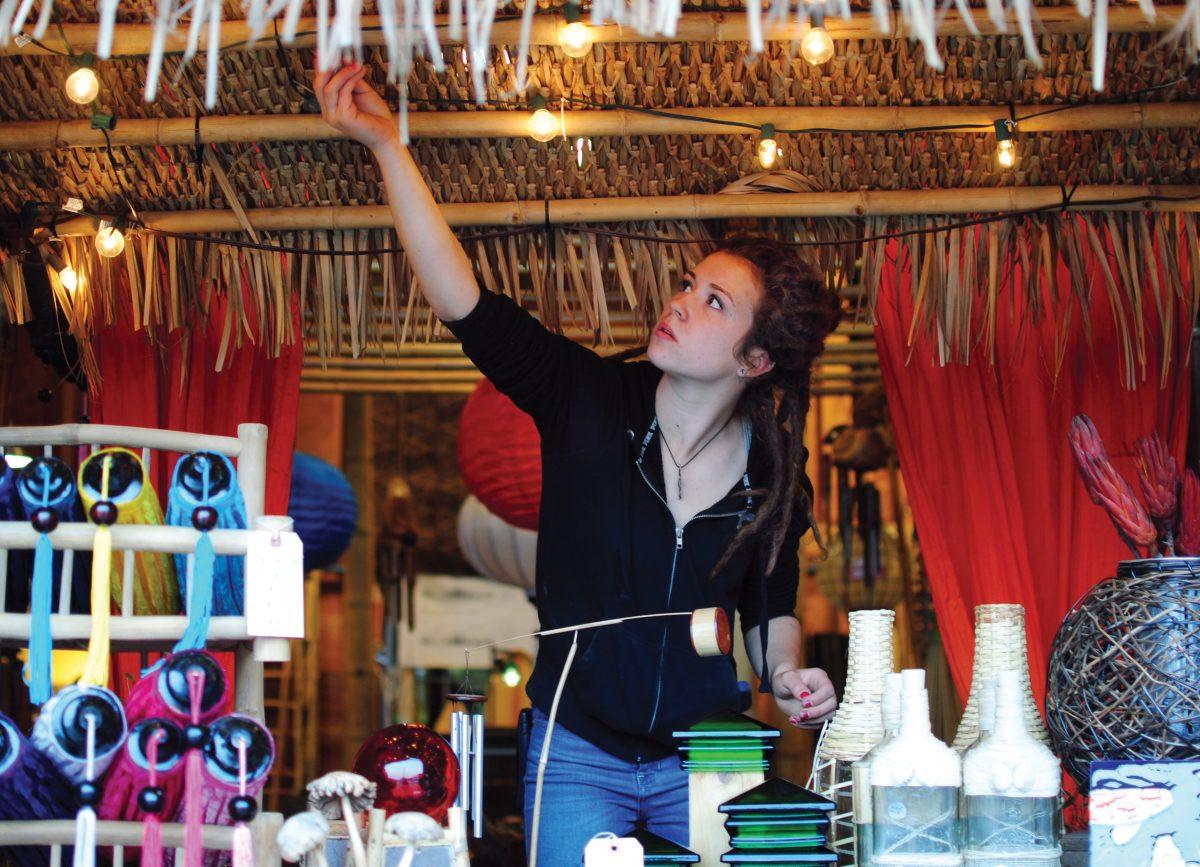
While Sutter’s time at Grant drew to a close last January, del Togno chose to enroll in a single, in-school class for second semester: fourth-year Spanish. Though she had already taken the class and had completed fifth-year Spanish the year before, she felt it was important to brush up on the language for the trip. She is taking economics online to fulfill her graduation requirements.
“It’s hard work, taking two classes and working full time,” say del Togno, who stops by Grant for Spanish at 8:15 a.m. three days a week, then heads to work immediately after class.
Tanya Rogers, del Togno’s mother, was apprehensive at first about her daughter’s trip plans.
“Like most parents, I wanted her to go the college route right after high school,” Rogers says, but since the idea has been developing for nearly a year, she’s had time to think. “Everyone I’ve talked to that has done this said that it was the best thing they’ve ever done and that they learned so much.”
Rogers now expresses excitement for the journey that her daughter and Sutter will soon take. She’s been taken aback by their maturity and independence in preparing.
“They have done all of this on their own. I haven’t had to help them with a thing,” Rogers says. “My only concern as a parent is her safety.”
They plan to spend a substantial amount of time in Guatemala, one of the cheaper countries. According to their research, they’ll each need to spend about $25 per day there. Del Togno just got her passport, and together they’ve purchased so much backpacking equipment that they may not be able to bring it all.
The couple intends to spend the majority of the nights in youth hostels, which run at an inexpensive $5 to $20 a night in Central America, depending on the country. On other nights, when it’s safe, they’ll sleep in hammocks.
Aside from vaccinations, which are to be administered four to six weeks before departure, they’re essentially ready to go.
Sutter and del Togno both want to use their trip to find what they’re truly interested in before they invest in a college education. Sutter wants to avoid majoring in one thing, then realizing he wants to do something different, requiring him to go back to school and spend more money.
Del Togno agrees, saying, “I’m not really sure what I want to do, so I kinda always knew I wanted to take a gap year.”
While Sutter is keen on cultural immersion, del Togno, who is considering the veterinary field, is looking forward to the nature and wildlife. “They have some crazy big bugs down there,” she says.
Meanwhile, del Togno’s mother is just glad that Sutter and del Togno will have each other.
“Oh gosh, I’m happy they’re going together. If she was going by herself I’d be way more worried,” says Tanya Rogers. “I think it’s gonna be a great opportunity for them to get to know themselves more and what they want to do with their future, and in the process they’re gonna have an adventure and make memories to last a lifetime.” ◊


































